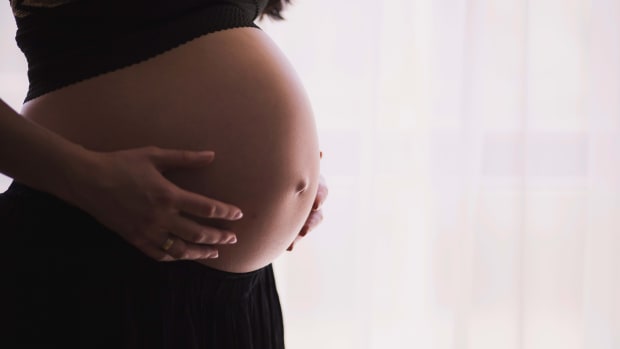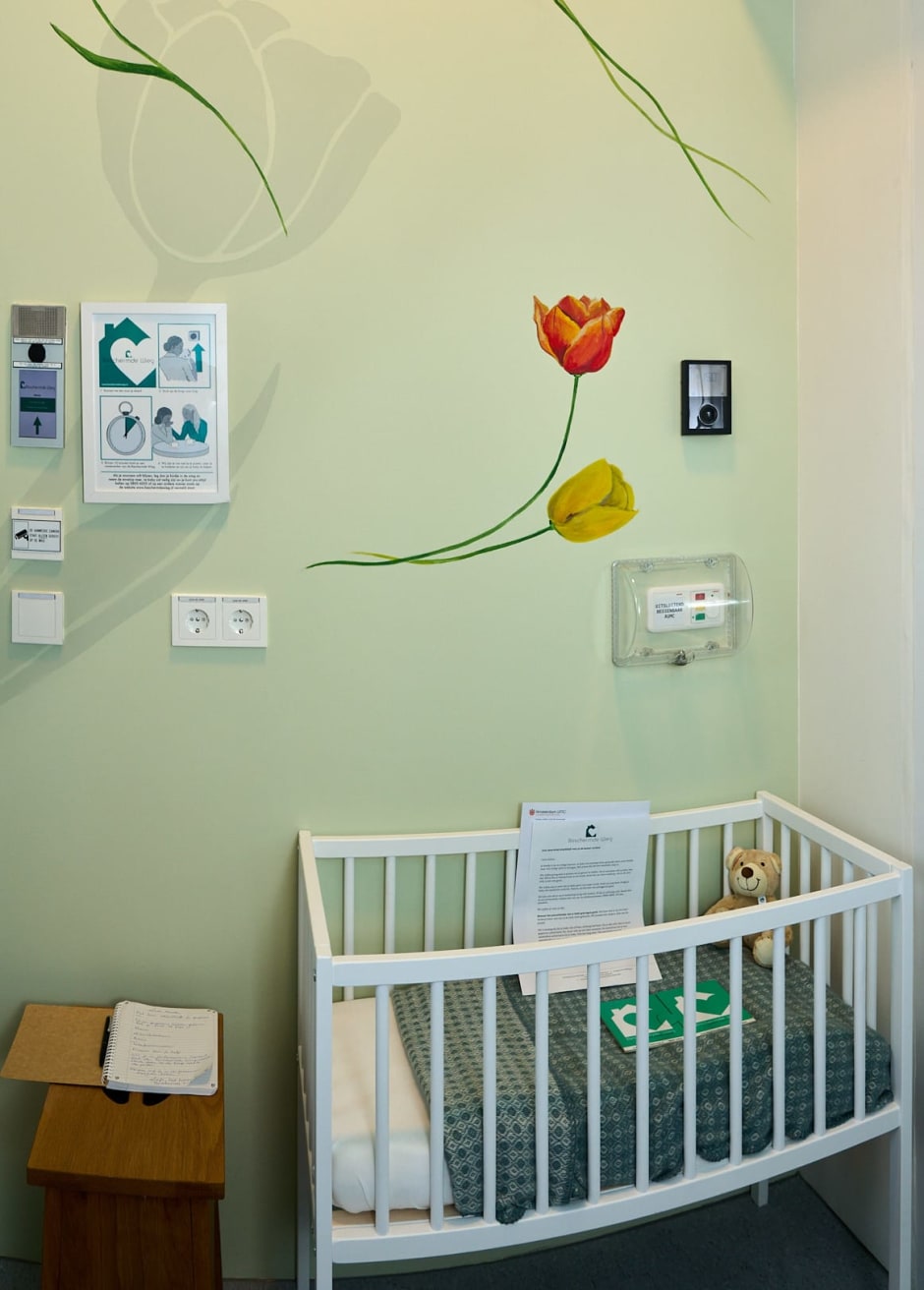
More and more students are turning to adoption in case of unwanted pregnancy
Students who hide their pregnancies under thick jumpers and give birth alone is still a reality in the Netherlands. Stichting Beschermde Wieg, a foundation that helps women through all stages of an unwanted pregnancy, has seen the group of students grow in recent years. “Above all, these women want to avoid interference from their parents.”
It sounds like a story from another time. Yet last year, a student gave birth alone in her student house. She then immediately went out onto the streets, wrapped the baby in a blanket, and gave it up for adoption.
Kitty Nusteling, operational director at the Beschermde Wieg foundation, has seen more and more students like this in recent years. “Sometimes they take an exam the following week.” Every year, around 1,500 women contact Beschermde Wieg for help at all stages of pregnancy. This may involve a listening ear, advice, shelter or medical support, or giving up babies for adoption. This year, the foundation has already facilitated seven births by women who wanted to give up their children for adoption, three of whom were still studying. Two of those births were in Amsterdam.
It is difficult to say whether this means that the number of students in the Netherlands who are hiding their pregnancy is increasing. However, Nusteling does see more women who only use natural contraception, methods of preventing pregnancy without hormonal agents, which are less reliable. Nusteling: “In addition, there is always a number X, the women who do not report to us. Research shows that women who want their children never to be found succeed in their intention.”

No interference from parents
The reason why women contact the Beschermde Wieg foundation is almost always universal. Nusteling: “It often involves women or couples who do not want interference from parents or others in their environment, avoid care for a long time, hide their pregnancy and only start thinking about giving birth at the end of the pregnancy.”
This also applies to students, who sometimes repress a pregnancy. “Students are often busy, pay little attention to their bodies and sometimes only discover they are pregnant at a late stage. Sometimes the 22-week limit for abortion has already passed. There are also women who do not want an abortion because of their religion, upbringing or personal beliefs. These women wear baggy clothes, give birth in hospital – or alone – and go to take their exams the following week.”
That sounds like a story from the 1960s and 1970s, when there was a huge taboo surrounding unmarried pregnancy and thousands of girls and women carried their pregnancies to term in secret and were forced to give their children up for adoption. The judgement of “indecency” no longer plays a role, says Nusteling. “Nevertheless, students are still afraid of disappointing their parents, and shame plays a role. I often hear: ‘My parents will think this is incredibly stupid.’”
For students who have come to the Netherlands from St Maarten and Curaçao to study, their parents’ expectations are sometimes sky-high. “The students are the hope of the family. The idea is that with a baby, they won’t get much out of their studies.”
Not so long ago, abandoning your child was a criminal offence in the Netherlands. Anyone caught doing so could expect a four-year prison sentence. Nevertheless, around four to six foundlings were found each year in the Netherlands, in shopping bags or rubbish bins.
In 2014, the Beschermde Wieg (Protected Cradle) foundation opened the first Beschermde Wiegkamer (Protected Cradle Room) in Papendrecht to prevent this. Since 2019, foundling rooms have been tolerated in the Netherlands and there are now fourteen rooms in hospitals, including one at the Amsterdam UMC.
Above all, these students want to avoid interference from their parents. “Parents are quick to suggest ways to keep the child in the family. Many students see this interference – however well-intentioned – coming and decide, sometimes with their partner, to arrange everything themselves.”
The Beschermde Wieg foundation also helps women and couples to tell their parents about the pregnancy. “Sometimes we accompany women to their parents. And it’s always better than expected. Most parents react with: ‘Have you had to carry this alone all this time?’ The biggest judgement is ultimately what people think of themselves.”
Foundling room at Amsterdam UMC
On 29 January 2024, the Beschermde Wieg foundation also opened a foundling room at Amsterdam UMC. There, women can leave their children completely anonymously. The foundling room is located next to the emergency room at Amsterdam UMC’s AMC location, so the door is always open.

Since the opening of the foundling room, no babies have been brought in anonymously. Nusteling: “We see that most women call first, sometimes just to ask if the room is open. We then suggest that they come to the room. This allows us to talk to them and discuss the mother’s situation. Women can also have a doctor assess whether everything is okay, anonymously if they wish.”
Nevertheless, since 2014, there have been only three anonymous cases of use of a foundling room in the Netherlands. “That doesn’t mean it’s not a success,” says Nusteling. “Last year, 17 women in the Netherlands gave up their babies for adoption. We would like every hospital to have a room so that women always have the option of leaving their child anonymously and safely. At the same time, we also want the rooms to remain empty.”
Leaving a baby anonymously is contrary to the Convention on the Rights of the Child, which stipulates that every child has the right to know who their parents are. Nusteling: “That’s why we opted for a room, rather than a hatch, as is customary in Germany. It’s easier for a mother to put her child in the hatch and leave. A room is more conducive to conversation.”

